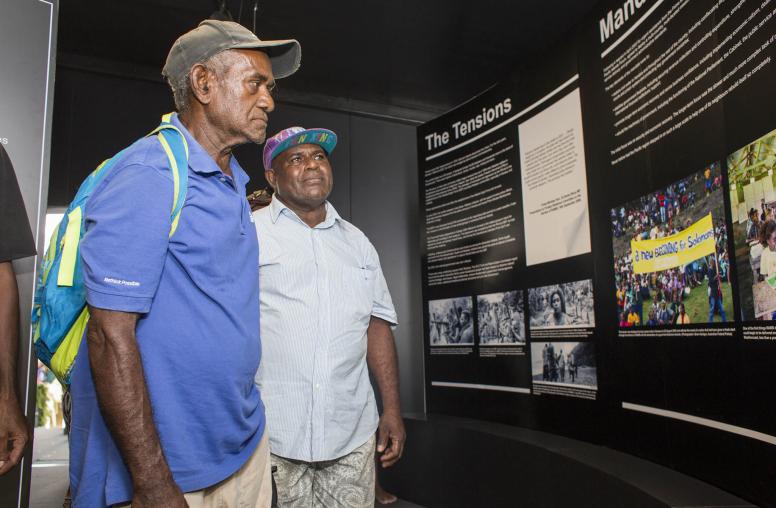Disengaging from Violent Extremism
Kickoff for USIP Initiative on Violent Extremist Disengagement and Reconciliation
Governments and communities worldwide are now grappling with what to do when citizens who participated in violent extremist conflicts return home. Though the violent radicalization process is complex, it is inherently social in nature—and disengagement efforts will need to address those social factors too. Many returning persons will face prosecution, while others will reintegrate directly into local communities. But once the justice systems mete out their sentences, returnees need processes that enable them to abandon their violent attitudes and behaviors, and communities need approaches that can create social cohesion to avoid further violence, revenge, and future radicalization.
On January 21, USIP kicked off our VEDR initiative to progress past conventional notions of deradicalization—which generally focus on transforming a person’s beliefs about ideologies—and instead develop a systemic approach that simultaneously encourages disengagement and builds social cohesion and community resilience to prevent the reoccurrence of violence.
This panel explored the cognitive, social, and structural factors involved in the disengagement, reintegration, and reconciliation of violent extremists within local communities. The premise of the panel is that sustained, positive, inclusive engagement with local communities is critical for building bonds, generating a sense of belonging, and fostering a cognitive opening to disengage from violent extremism.
Continue the conversation on Twitter with #ReintegratingExtremists.
Panelists
Dr. David Yang, opening remarks
Vice President, Applied Conflict Transformation, U.S. Institute of Peace
Dr. Laura G. E. Smith
Senior Lecturer, University of Bath
Dr. Mary Beth Altier
Clinical Associate Professor, New York University
Dr. B. Heidi Ellis
Director, Refugee Trauma and Resilience Center, Boston Children’s Hospital
Dr. Rebecca J. Wolfe
Lecturer, University of Chicago
Dr. Stevan M. Weine
Professor of Psychiatry, University of Illinois at Chicago
Mr. Chris Bosley, moderator
Senior Program Officer, Countering Violent Extremism, U.S. Institute of Peace




